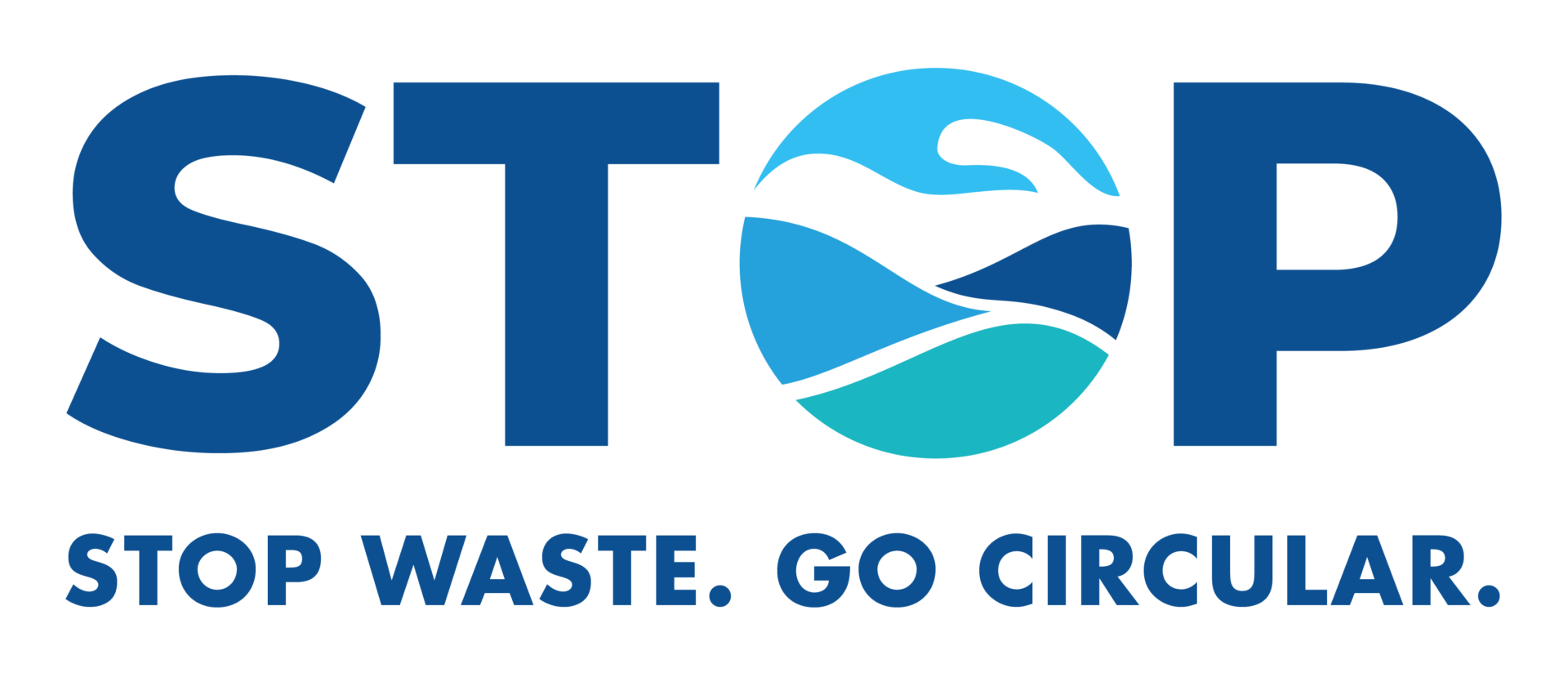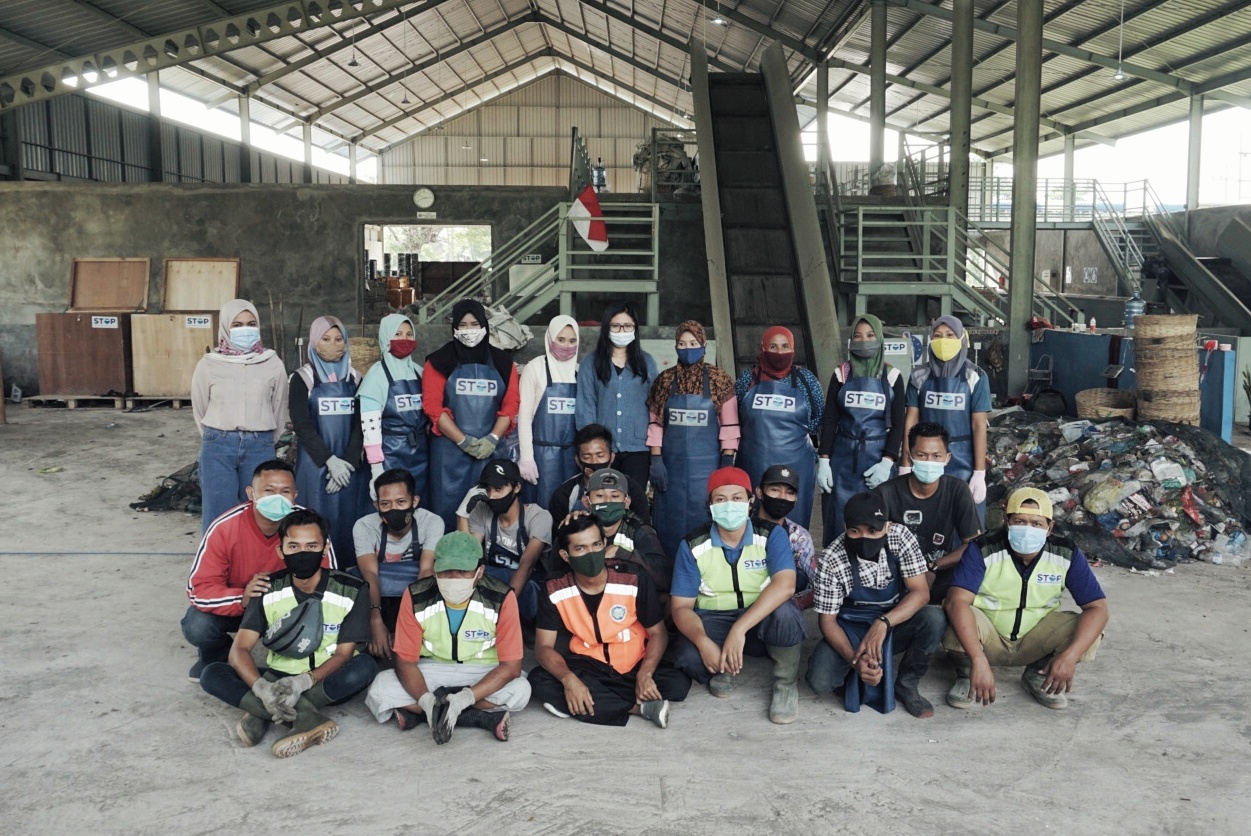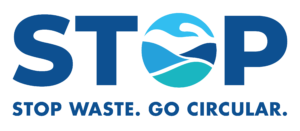
Project STOP marks major milestones and expands waste collection services to over 300,000 people
- Project STOP has created positive social and environmental impact in three cities in Indonesia, including the launch of the scale-up programme Project STOP Banyuwangi Hijau from Muncar into the Banyuwangi Region.
- By the end of 2022, Project STOP provided waste collection services to more than 300,000 people, created 333 full time jobs in the waste sector and collected more than 40,000 tons of waste
2 March, Indonesia—Project STOP and its partners today reached significant milestones and successes in demonstrating a model for expanding affordable waste management and recycling solutions to help address the plastic waste challenge in Indonesia. By the end of 2022, the programme has provided access to waste management services to over 300,000 people across three cities in Indonesia — to most for the first time —, built five waste processing facilities and enabled the collection of more than 40,000 tons of waste (including more than 5,000 tons of plastics).
Project STOP is co-funded by Borealis and Systemiq, who share the same vision: to permanently stop waste leaking into the environment by supporting the establishment of low-cost waste management solutions, creating real impact through action on the ground. The key objectives of the programme include:
- Reducing waste leakage into the environment by providing affordable, reliable and formal waste collection to all citizens;
- Promoting resource efficiency and circularity that transform waste into feedstock for recycling;
- Achieving economic sustainability;
- Benefitting the communities through improved public health and creating permanent job opportunities in waste and material sorting sectors.
The programme’s first city partnership started in 2017 in Muncar, a coastal fishing community in Banyuwangi Regency, East Java, Indonesia. Active support from Project STOP for the Muncar waste management system ended in February 2022 and to date, the local government authorities are continuing to operate the system successfully. Active support for the waste management system in Pasuruan Regency, East Java, ended in February 2023. The project continues to operate in the Jembrana Regency in Bali, and has started its expansion into the Banyuwangi Regency, East Java, with the construction of a new material recovery facility (MRF).
Thomas Gangl, CEO, Borealis, said “Project STOP’s impressive results generated during challenging times enable us to demonstrate the important role of improved waste management solutions at scale, to avoid negative environmental impacts of plastic waste. This well complements Borealis’ endeavours towards a circular system approach for plastics by driving reduction, reuse and design for recycling. We are proud to have achieved these results together with all our partners and thank all our local, national and international supporters and project partners for their commitment!”
Jason Hale, Director of Operations, Ocean Plastics Asia, Systemiq, said “In 2022, we materially increased households served and tons captured in our second and third Project STOP cities. Over 300,000 people are now participating in our waste services, and it has been offered to many more. More importantly, we completed capacity building with our local partners in these cities, setting these programs on course for long-term sustainability and growth. Moreover, we created a strong foundation in the Banyuwangi Regency from which we will grow our impacts at a larger scale, while building a roadmap for other Regencies to follow. We welcome additional funders to support this planned expansion for 2023-2026, and remain proud to deliver Project STOP in partnership with strong local and national government agencies, as well as our funders and advisors.”
Scaling up waste management and recycling solutions is challenging in Indonesia because of the financing required to build and operate waste management systems, and the need for large-scale community behaviour changes and skills development amongst waste system operators. Organic waste and some types of plastic waste (particularly multi-layer plastics made from multiple types of plastics) have very low value for recycling or composting. So far, the project has achieved participation rates ranging from 50% to 87% depending on the location, and on average slightly more than 30% of non- organic recyclable materials are sent for recycling across all partner communities.
Project STOP’s impact was made possible through the invaluable support from Indonesia’s national and local government agencies, including the Ministry of Environment and Forestry, the Coordinating Ministry for Maritime Affairs, the Ministry of National Development Planning/National Development Planning Agency, the Ministry of Public Works and Public Housing, the Banyuwangi Government, the Pasuruan Government and the Jembrana Government. In addition to its founders Borealis and Systemiq, Project STOP is grateful to its strategic partnerships with leading organizations from international institutions, academia and private sectors: the Norwegian Ministry of Foreign Affairs, Nestlé, Borouge, the Alliance to End Plastic Waste, Siegwerk, Schwarz, HP, P4G, Accenture, and Pisces.
About Project STOP
Launched in 2017 by Borealis and Systemiq, Project STOP works hand-in-hand with city governments to create effective circular waste management systems in Indonesia. The initiative supports cities with technical expertise to reduce waste leakage into the environment, increase recycling, build economically sustainable programs, creating new jobs and reduce the harmful impact of mismanaged waste on public health, tourism, and fisheries. While the first city partnership was established in 2017 in Muncar, Project STOP also operates two additional city partnerships, in Pasuruan Regency, also in the island of Java, and Jembrana Regency, on the north coast of Bali.
Project STOP’s corporate partners include Nestlé, Borouge, the Alliance to End Plastic Waste, Siegwerk, Schwarz, and HP, with support from Trusts and Foundations, P4G and Accenture, including Academia, Pisces. Project STOP’s success is in large part thanks to these collaborations as well as its close partnership with the Norwegian Government, local and national government offices in Indonesia, including the National Ministry for Environment and Forestry (KLHK) with which it has a Memorandum of Understanding (MOU), the Coordinating Ministry for Maritime and Investment Affairs (CMMAI) and the Regency governments in the regions it works in. Project STOP now comprises a team of 35 committed environmental leaders. www.stopoceanplastics.com
About Borealis
Borealis is one of the world’s leading providers of advanced and sustainable polyolefin solutions and a European front-runner in polyolefins recycling. In Europe, we are a market leader in base chemicals and fertilizers. We leverage our polymer expertise and decades of experience to offer value adding, innovative and circular material solutions for key industries such as consumer products, energy, healthcare, infrastructure and automotive.
In re-inventing essentials for sustainable living, we build on our commitment to safety, our people, innovation and technology, and performance excellence. We are accelerating the transformation to a circular economy of polyolefins and expanding our geographical footprint to better serve our customers around the globe.
With head offices in Vienna, Austria, we employ 6,900 employees and operate in over 120 countries. In 2021, we generated total sales of EUR 12.3 billion and a net profit of EUR 1,396 million. OMV, the Austria-based international oil and gas company, owns 75% of our shares, while the remaining 25% is owned by Abu Dhabi National Oil Company, or ADNOC, based in the United Arab Emirates (UAE). We supply services and products to customers around the globe through Borealis and two important joint ventures: Borouge (with ADNOC, headquartered in the UAE); and Baystar™ (with TotalEnergies, based in the US). www.borealisgroup.com | www.borealiseverminds.com
About Systemiq
Systemiq, the system change company, was founded in 2016 to drive the achievement of the Paris Agreement and the UN Sustainable Development Goals, by transforming markets and business models in five key systems: nature and food, materials and circularity, energy, urban areas, and sustainable finance. A certified B Corp, Systemiq combines strategic advisory with high-impact, on-the-ground work, and partners with business, finance, policy makers and civil society to deliver system change. Systemiq has offices in Brazil, France, Germany, Indonesia, the Netherlands and the UK. www.systemiq.earth.



